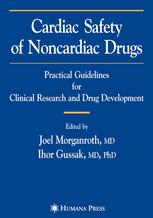

Most ebook files are in PDF format, so you can easily read them using various software such as Foxit Reader or directly on the Google Chrome browser.
Some ebook files are released by publishers in other formats such as .awz, .mobi, .epub, .fb2, etc. You may need to install specific software to read these formats on mobile/PC, such as Calibre.
Please read the tutorial at this link: https://ebookbell.com/faq
We offer FREE conversion to the popular formats you request; however, this may take some time. Therefore, right after payment, please email us, and we will try to provide the service as quickly as possible.
For some exceptional file formats or broken links (if any), please refrain from opening any disputes. Instead, email us first, and we will try to assist within a maximum of 6 hours.
EbookBell Team

0.0
0 reviewsAlthough it is relatively easy to determine the efficacy of a new drug, it is difficult to establish its safety when administered to millions of patients with multifaceted diseases, co-morbidities, sensitivities, and multiple drug use. In Cardiac Safety of Noncardiac Drugs: Practical Guidelines for Clinical Research and Drug Development, basic and clinical researchers from industry and academia detail the preclinical, clinical, and regulatory principles currently used to assess the cardiac safety of new drugs from their effects on the electrocardiogram (ECG). The authors explain the parameters of cardiac safety at all stages of clinical research and drug development, including both the preclinical and pharmacogenomic aspects generally and the clinical methodologies and technical aspects for investigational drugs based on cardiac repolarization, as defined by the duration of the QTc interval. Additional chapters comprehensively review the application of electrocardiology in clinical research, demonstrating the fundamentals of ECG interpretation in clinical trials, the statistical analysis plans for ECG data obtained in formal clinical trials, and the practical interpretation of the results. Highlights include practical guidance on how to conduct a thorough ECG Trial in New Drug Development, how to use new ECG and web-based technology in clinical research, and how to follow the new FDA requirements for ECG submissions.
Authoritative and up-to-date, Cardiac Safety of Noncardiac Drugs: Practical Guidelines for Clinical Research and Drug Development offers clinical researchers in industry and academia expert practical advice on establishing their product's cardiac safety, predicting regulatory actions, and getting it successfully to market.